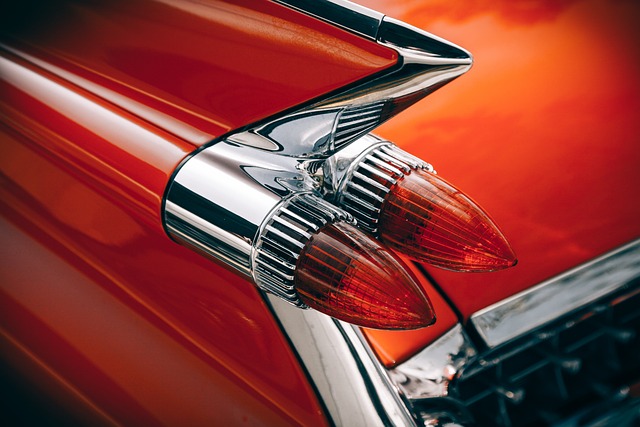In Los Angeles' dynamic car market, VIN number verification is vital for buying and selling vehicles. This process uses the 17-character VIN to uncover vehicle history, including make, model, year, accident records, ownership changes, and outstanding issues, by cross-referencing with databases. It's crucial due to the city's high transaction volume among dealers and private sellers, promoting transparency and trust. The process involves verifying documents like registration and title, scrutinizing VINs for discrepancies, and using resources like NMVTIS to prevent stolen vehicles from passing inspection.
Los Angeles residents often need to ensure their vehicles are safe and legally compliant, making VIN (Vehicle Identification Number) number verification a crucial process. This article guides you through the essential steps involved in this procedure, which is mandatory for registration and title issuance. We’ll explore the required documents, common issues, and how to resolve them, empowering you with knowledge to navigate Los Angeles’ VIN verification requirements effortlessly.
- Understanding VIN Number Verification in Los Angeles
- Steps Involved in the VIN Verification Process
- Documents Required for Vehicle Inspection
- Common Issues and How to Resolve Them
Understanding VIN Number Verification in Los Angeles

In Los Angeles, as with many places, understanding the importance of Vehicle Identification Number (VIN) verification is paramount when buying or selling a car. VIN number verification ensures that a vehicle’s history is transparent and accurate, protecting buyers from potential fraud and providing peace of mind. It involves cross-referencing the unique 17-character VIN against vast databases to gather crucial information such as the vehicle’s make, model, year, and production details. This meticulous process also uncovers any previous accidents, ownership changes, and outstanding issues, enabling informed decision-making.
Los Angeles, being a bustling metropolis with a vibrant car market, necessitates this verification step more than ever. It safeguards both parties involved in a vehicle transaction, ensuring that what appears on paper aligns with the physical condition of the car. With numerous dealerships, private sellers, and a high volume of transactions, VIN number verification acts as a crucial quality control measure, fostering trust and transparency among all participants in the automotive landscape.
Steps Involved in the VIN Verification Process

The VIN (Vehicle Identification Number) verification process in Los Angeles involves several crucial steps to ensure the authenticity and history of a vehicle. It begins with gathering all necessary documents related to the car, including registration papers, insurance records, and any maintenance or repair invoices. These documents play a vital role in establishing the ownership and service history of the vehicle.
Next, the VIN is carefully examined for any discrepancies or potential signs of tampering. This includes checking the number’s formatting, digit-to-digit accuracy, and matching it against the vehicle’s manufacturing data available from various databases. Specialized tools and software are often utilized to cross-reference the provided information, ensuring that the VIN is legitimate and has not been altered or stolen for any fraudulent activities.
Documents Required for Vehicle Inspection

For a successful Los Angeles VIN (Vehicle Identification Number) verification process, certain essential documents are required. The primary document is the vehicle’s registration certificate, which should be up-to-date and valid. This certificate contains crucial information that facilitates the identification and validation of the vehicle.
Additionally, proof of ownership is mandatory, typically presented in the form of a title or a bill of sale. These documents ensure that the person undergoing the VIN verification is indeed the legal owner of the vehicle. Furthermore, insurance paperwork might be requested by the inspection facility to confirm that the car is insured for road usage, enhancing the overall credibility of the process.
Common Issues and How to Resolve Them

Los Angeles, like many cities, has its share of vehicles with outstanding issues that can trip up the VIN (Vehicle Identification Number) verification process. Common problems include:
Incorrect or Missing Documentation: Always ensure the vehicle owner provides a valid registration, insurance card, and proof of ownership during the inspection. Double-check that all documents match the VIN on file.
Altered or Tampered VINS: This is a serious red flag. If there are signs of a manipulated VIN, report it to the appropriate authorities. A professional inspector can also identify potential alterations based on their expertise.
* Theft Recovered Vehicles: Check the National Motor Vehicle Title Information System (NMVTIS) to ensure a vehicle hasn’t been reported stolen. A stolen vehicle history will prevent successful verification and could lead to legal complications for the owner.
Addressing these issues early in the process ensures a smoother VIN verification experience. If problems arise, don’t hesitate to consult with a trusted inspector or automotive expert for guidance.
Los Angeles’ VIN number verification process is a straightforward procedure that ensures vehicle authenticity. By following these steps, including gathering necessary documents, you can easily navigate through the inspection. Being prepared with the right paperwork and understanding potential issues helps streamline the process, making it a valuable step for any car owner or buyer. Remember, a valid VIN verification is crucial for maintaining the integrity of the automotive market in Los Angeles.



